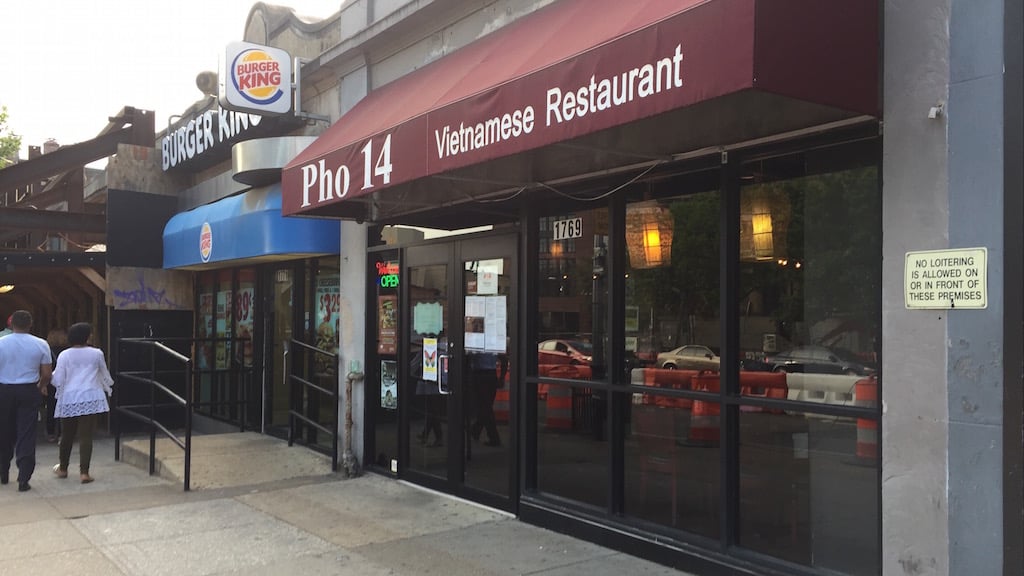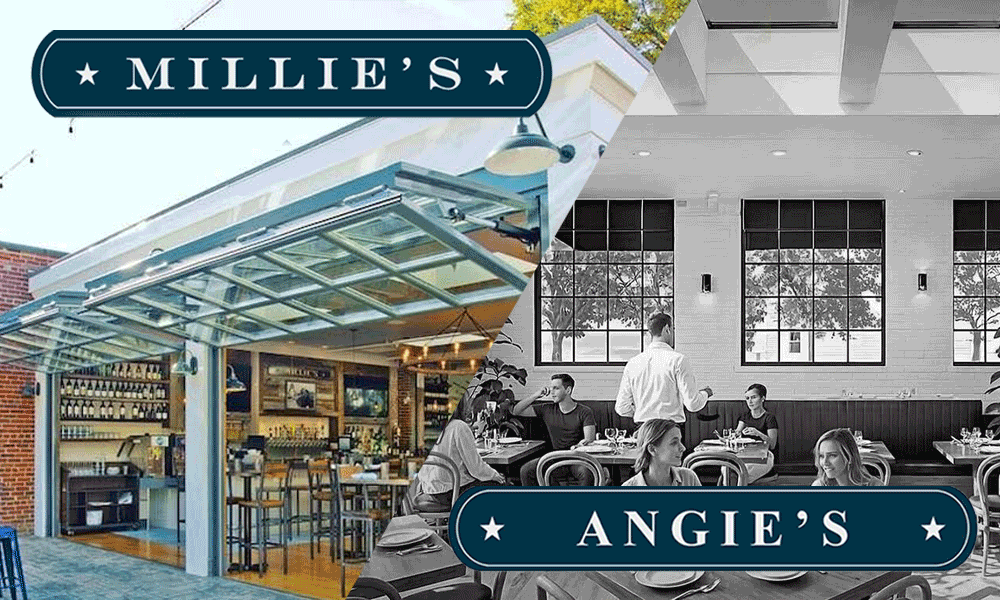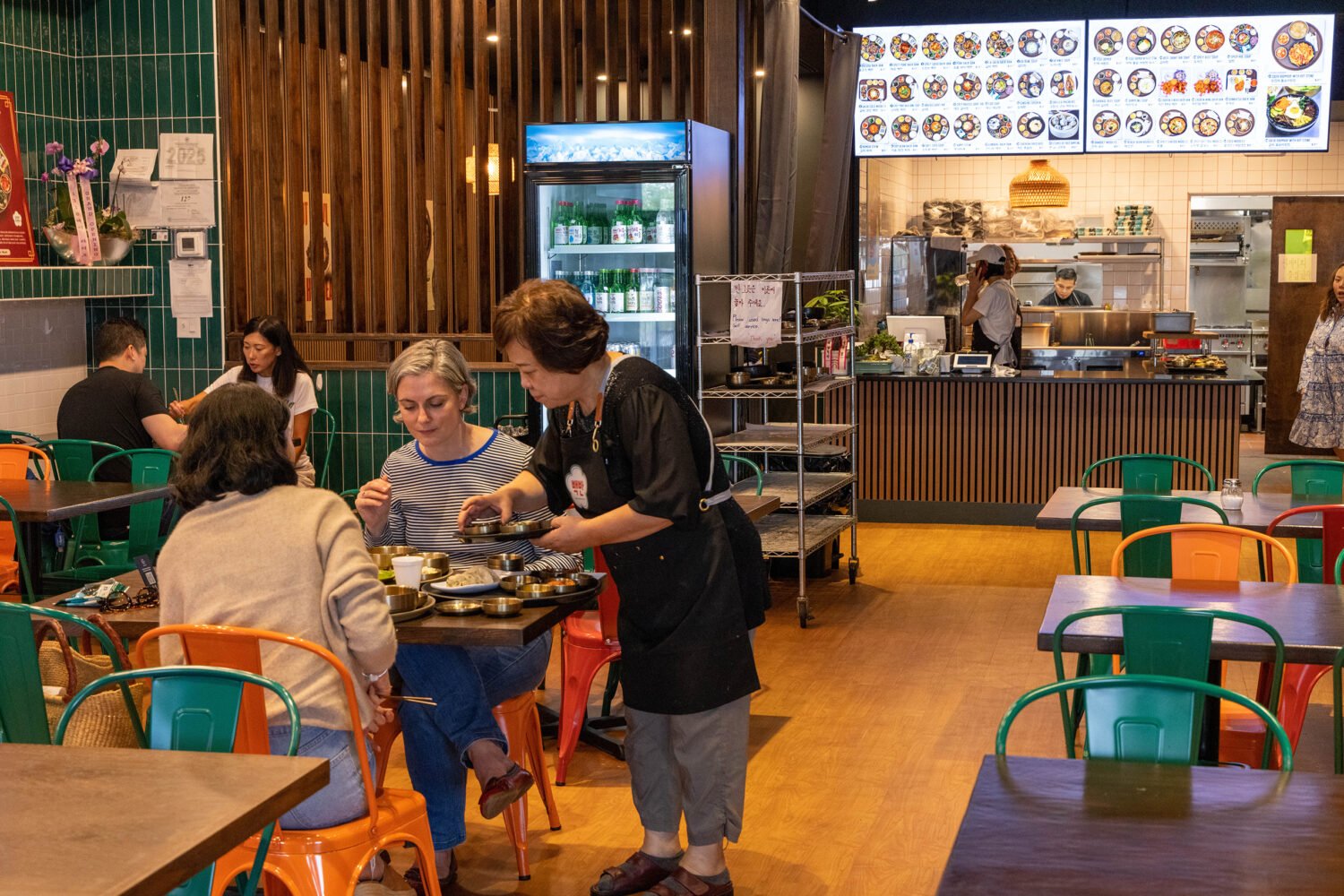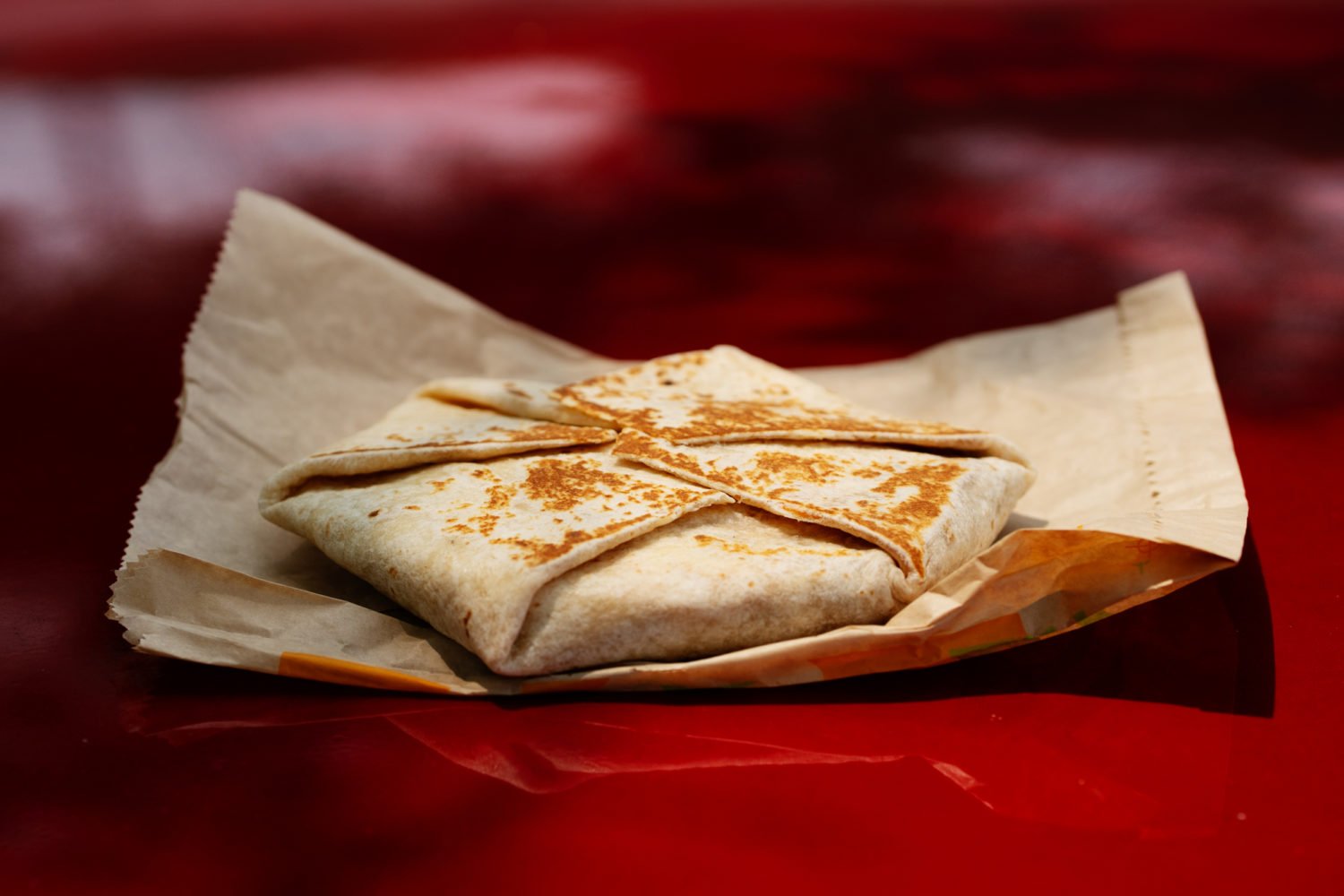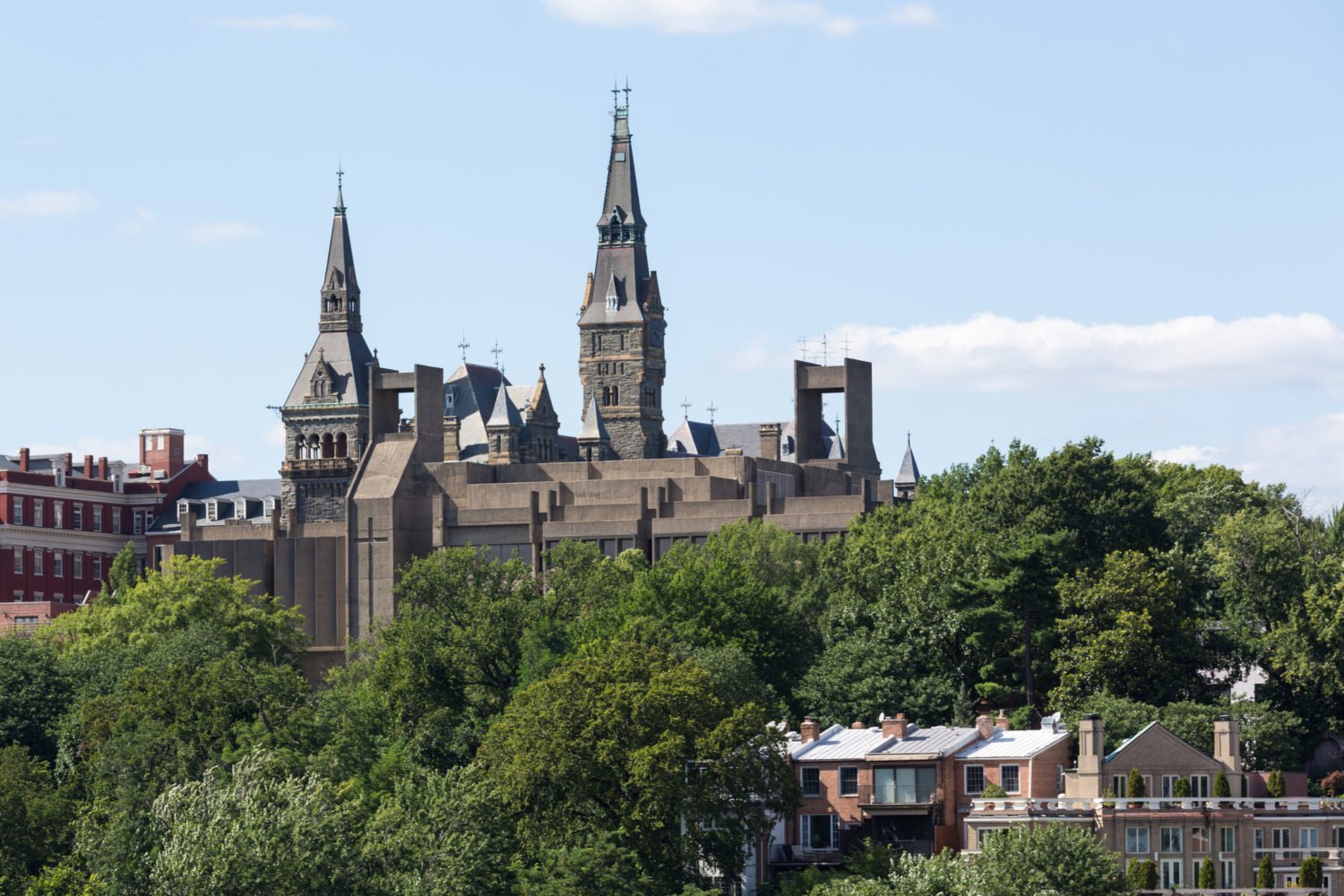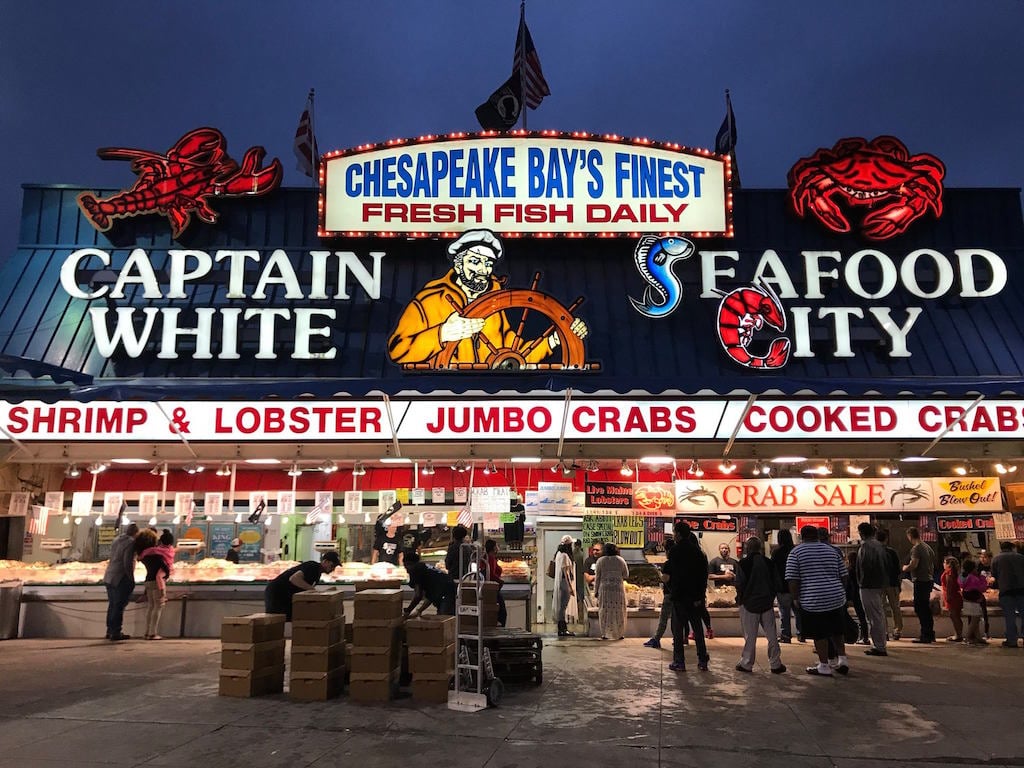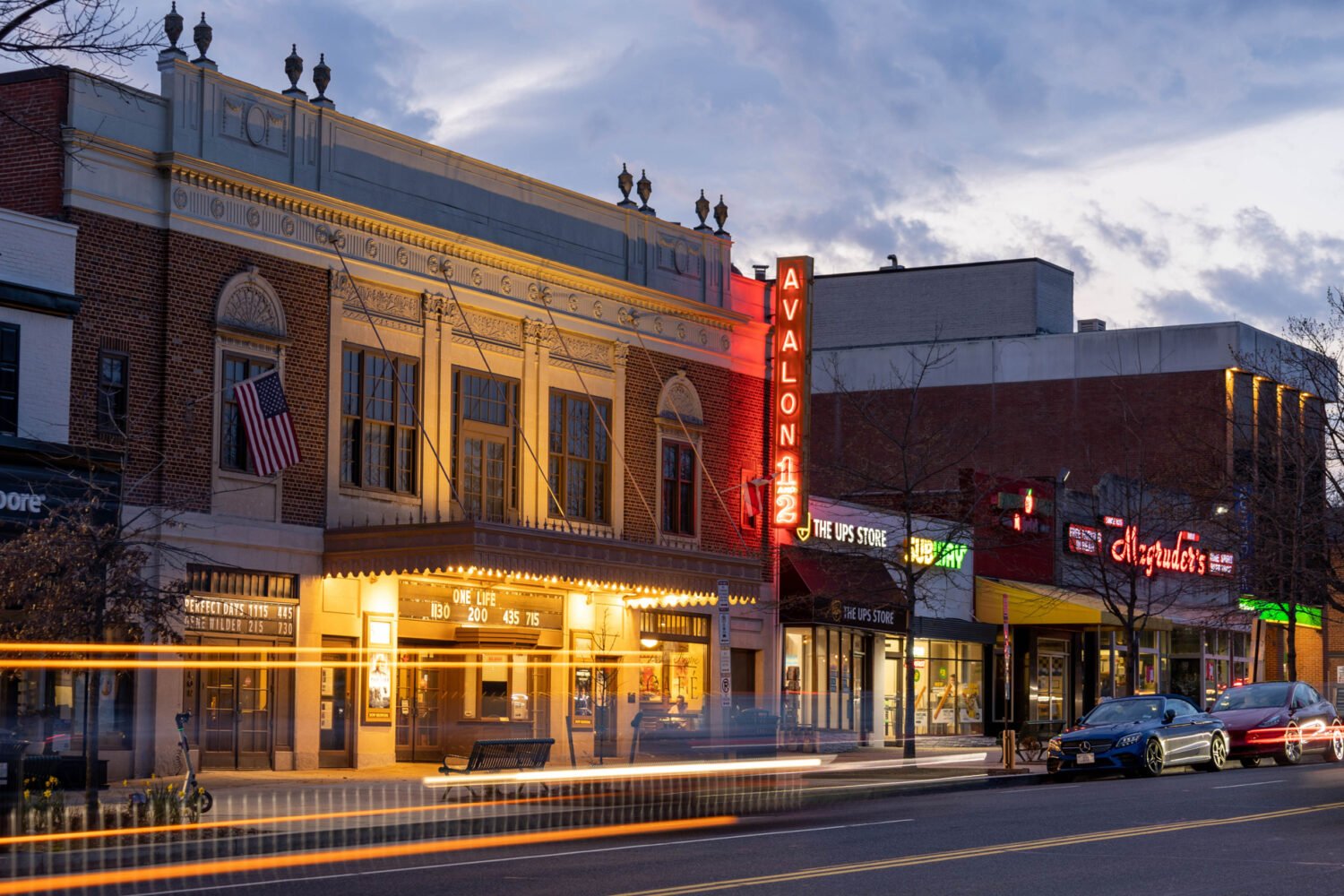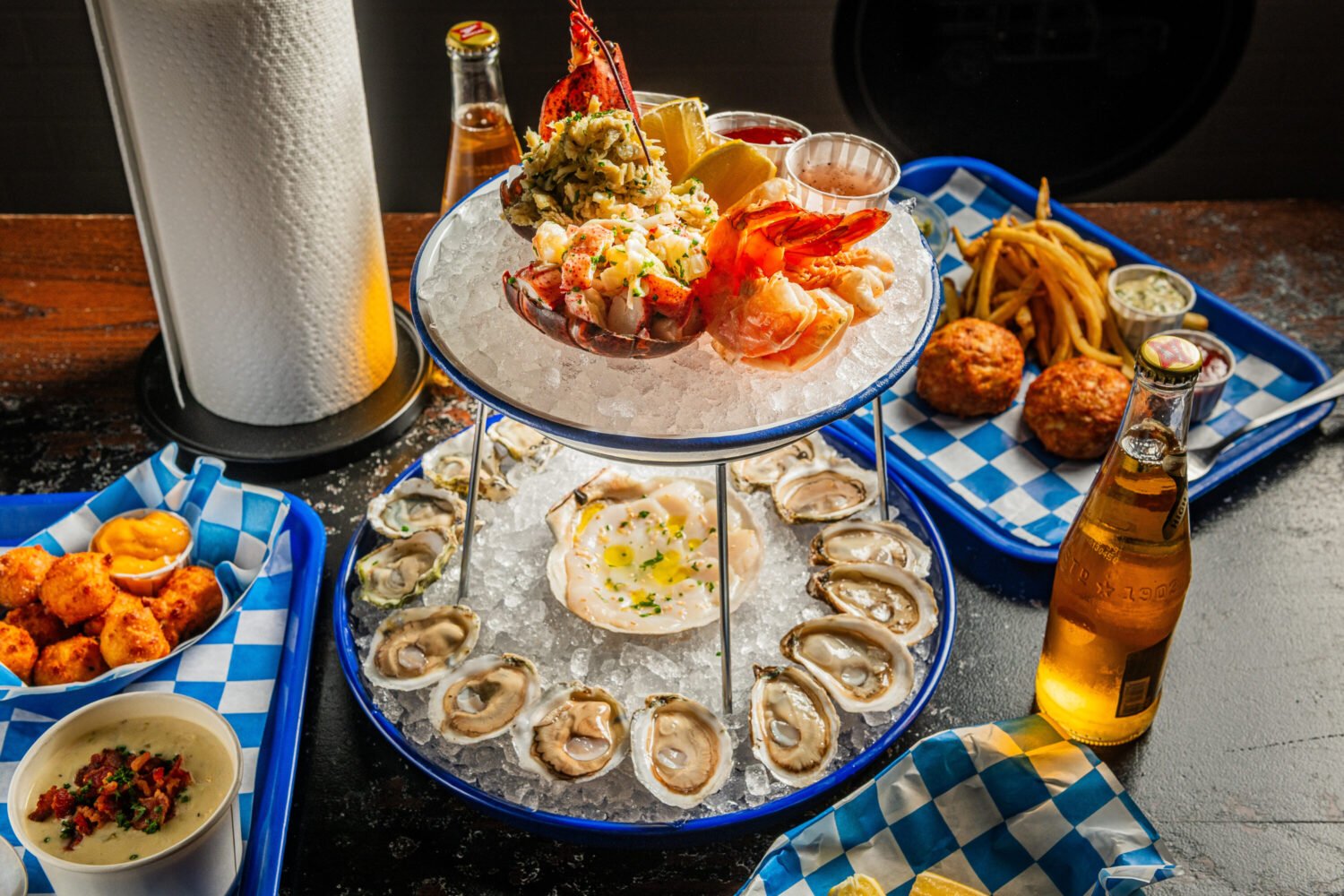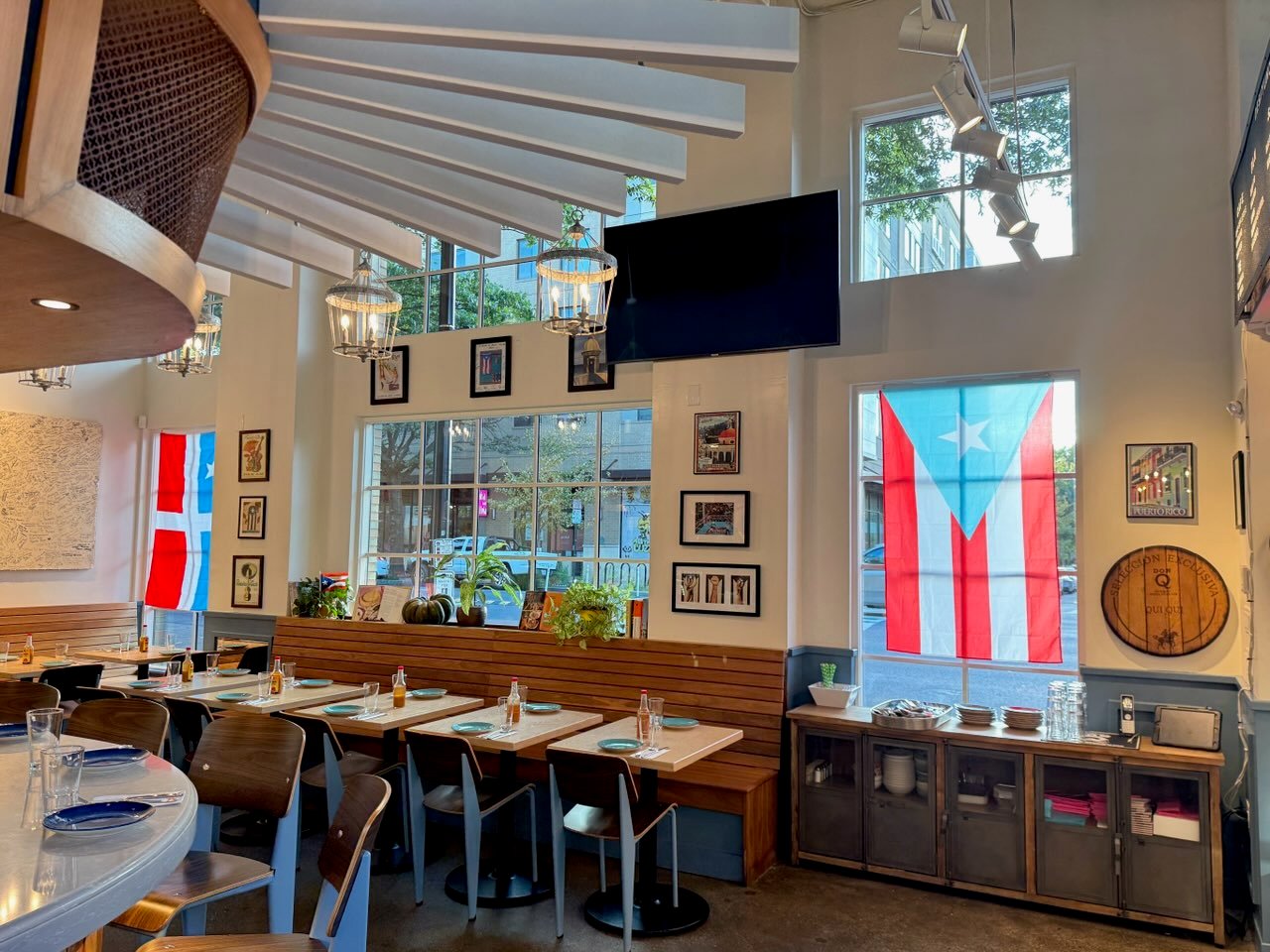Vietnamese restaurant Pho 14 and its Adams Morgan landlord have been engaged in a legal battle for nearly two years about whether there’s any danger from chemicals found at the property, most likely lingering from a former dry cleaning plant.
The landlord, who’s redeveloping the neighboring property into a mixed-use building, claims that elevated levels of a carcinogen known as tetrachloroethylene, or PCE, pose a serious health risk to employees and diners. They say they want the restaurant out so they can remove the contaminated soil. Meanwhile, Pho 14’s owners say environmental reports have been overblown in an attempt to kick out the business so the landlord can raze the building and bring in a more profitable tenant.
“We’re always concerned about anything that’s quote-unquote ‘hazardous’ for any of our employees and the community,” says Tim Hoang, whose parents own Pho 14 and whose brother Tommy Hoang also helps operate it. But he points to an environmental report the restaurant commissioned, which counters that there is “no significant risk.”
Columbia Road of DC LLC purchased a string of buildings in Adams Morgan in November 2014, about two years after Pho 14 opened its location there. In the process of acquiring the property, Matt Wexler, one of the landlords, asked Pho 14 for permission to collect soil, soil vapor, groundwater, and indoor air samples for environmental testing. From 1942 to 1992, the property had housed a dry cleaners called Quality House Cleaners, which was reportedly cited with numerous violations by the Environmental Protection Agency.
The first rounds of testing, conducted by Northgate Environmental Management, detected PCE on site, but the landlord’s consultants wrote in a November 2014 report that the chemicals “do not appear to pose a potential threat to the current commercial occupants or to the environment.”
Around that time, Wexler reiterated to the owners of Pho 14 that there did not appear to be an “immediate threat” but that additional testing was warranted, according to his own deposition in September 2015. Meanwhile, the restaurant owners claim Wexler told them that dealing with contamination was not their responsibility under the lease. The landlord denies this.
According to Pho 14’s lawsuit, Wexler met with the owners again shortly after and told them they’d need to vacate the property in connection with its redevelopment and that the landlord would compensate them for lost time. He also showed them other properties. Tommy Hoang sent Wexler three compensation options, all of which were rejected, the complaint says.
Then in December 2014, the landlord sent a letter saying the soil under the property needed to be removed to eliminate any health threat. The landlord offered to pay for the work—if the restaurant permanently vacated the property. Wexler later testified that he was open to the possibility of the tenant returning after remediation.
But when the Hoangs refused to give up their lease, they say that the landlord told them they were responsible for cleaning up the alleged chemical contamination. In January 2015, the landlord sent a letter claiming the restaurant was in default of its lease for not doing anything to remediate the soil.
More testing occurred a few months later in April. In these later reports, Northgate’s findings sounded more alarming. In one letter, the environmental consultants wrote that groundwater concentrations of PCE “significantly” exceeded standards from the DC Department of Energy & Environment and that indoor air quality tests found “a concentration that exceeds the most stringent screening standard for worker protection.”
Extended exposure to PCE has been linked to immune system, liver, kidney, and neurological damage, according to the EPA.
The landlord filed a lawsuit seeking to evict the restaurant on April 23, 2015.
In its own subsequent lawsuit, the owners of Pho 14 say the soil cleanup is neither their responsibility nor necessary, and that therefore they are not in default of the lease. They accuse the landlord of purposely misinterpreting environmental testing results and a “campaign of harassment” to drive them out. They say that just because the chemical concentration exceeds a certain screening level, it doesn’t necessarily mean it’s a health risk requiring remediation, “let alone eviction of the tenants.”
The restaurant commissioned its own environmental study in August 2015. The report confirmed PCE was detected in one indoor air sample “at a concentration above the most conservative EPA screening level for industrial air.” But after calculating what the exposure would be to customers and employees, the consultants determined there was “no significant risk.” They also disagreed that soil or groundwater remediation was necessary, saying “there is no known soil contamination at the site.”
“Developing DC is great. I just think there’s a right way to do it and a completely wrong way to do it,” Hoang tells Washingtonian. “The way that our landlord is approaching it, I would have never done that. For me, it’s unethical.”
In response, Wexler says: “For several years, my partners and I have made numerous good faith efforts to work with the Pho 14 owners.”
Pho 14 wasn’t the only restaurant that battled with Columbia Road of DC over environmental testing. The landlord also sued the Burger King franchise next door after it refused to give them access to the property for indoor air quality tests and remediation efforts. Like their neighbors at Pho 14, the owners of the Burger King accused the landlord of an “aggressive campaign” to oust the restaurant so that it could raze and redevelop the property. A judge denied the landlord access to Burger King.
The landlord commissioned further testing around Pho 14 in November 2016. Environmental consultants again found PCE levels above EPA standards, which they suggest come from the shallow soil beneath Pho 14’s kitchen and potentially pose “an unacceptable health risk.”
A geochemist/hydrogeologist hired by the landlord to further assess the site says in an affidavit that the problem could be worse than reported because the indoor air sampling was done outside of peak heating season when building ventilation is lowest. He adds that the groundwater monitoring data so far suggests PCE concentrations are increasing over time, although more data is needed to confirm this. (Pho 14’s environmental scientist suggested earlier that the pattern could be produced by random or seasonal variation.)
The landlord is part of DOEE’s Voluntary Cleanup Program, which incentivizes property owners or developers to clean up contaminated land. As part of that program, the landlord has submitted its findings to DOEE.
“Our opinion right now is that this is not an emergency situation,” says DOEE Assistant General Counsel Wesley Rosenfeld.
Rosenfeld says that while the levels of PCE exceed the EPA’s threshold for lifetime exposure by commercial workers, there are a few relatively inexpensive mitigation measures that can be put in place to protect workers in the short-term until the property owner can clean up the site. “We are currently analyzing what measure would be the best for the property,” he says.
“I wonder if that particular DOEE lawyer is reading and evaluating the same data as we are,” Wexler says. “And if that DOEE lawyer has spoken with his or her colleagues in DOEE, who have acknowledged the presence of a known carcinogen inside the restaurant.”
In any case, it doesn’t appear DOEE wants to tip the scales in the legal battle.
“The purpose of the agency isn’t to resolve disputes between landlords and tenants,” Rosenfeld says. “That’s a situation for them to resolve between themselves.”

